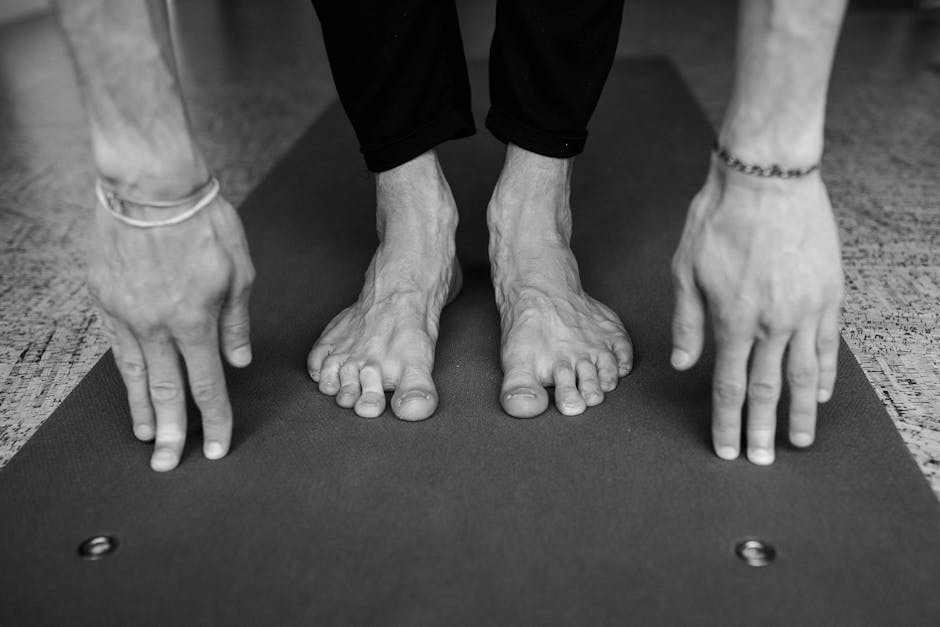Mindfulness Practices to Enhance Sobriety
Are you looking for ways to improve your sobriety journey? Mindfulness practices might just be the key to unlocking a deeper sense of self-awareness and inner peace that can support you in staying sober. In this article, we will delve into the world of mindfulness and explore how incorporating mindfulness practices can enhance your overall well-being and help you maintain your sobriety.
The Power of Mindfulness

Mindfulness is the practice of being fully present and engaged in the moment, without judgment. It involves paying attention to your thoughts, feelings, bodily sensations, and the surrounding environment with a sense of curiosity and acceptance. Many people find that mindfulness can help reduce stress, improve mental clarity, and enhance overall well-being.
When it comes to sobriety, mindfulness can be a powerful tool for managing cravings, addressing underlying emotional issues, and building resilience in the face of challenges. By cultivating mindfulness, individuals can develop a greater sense of self-awareness, emotional regulation, and the ability to respond to triggers in a more constructive way.
So, how exactly can mindfulness practices enhance sobriety? Let’s explore some key techniques and strategies that can support you on your journey towards a healthier, more mindful way of living.
Meditation for Sobriety

One of the most well-known mindfulness practices is meditation. Meditation involves training the mind to focus on the present moment, often through techniques such as deep breathing, body scans, or mantra repetition. For individuals in recovery, meditation can be a powerful tool for reducing stress, managing cravings, and cultivating a sense of inner peace.
Research has shown that regular meditation practice can lead to changes in the brain that support improved mood regulation, enhanced self-control, and reduced reactivity to stressors. By incorporating meditation into your daily routine, you can strengthen your ability to stay present, manage difficult emotions, and make healthier choices that support your sobriety.
Yoga for Mindful Movement

In addition to meditation, yoga is another mindfulness practice that can support individuals in recovery. Yoga combines physical postures, breathwork, and meditation to promote relaxation, stress reduction, and a sense of well-being. Through the practice of yoga, individuals can cultivate greater body awareness, emotional regulation, and a deeper connection between mind and body.
Yoga can be particularly beneficial for individuals in recovery by providing a healthy outlet for stress, anxiety, and negative emotions. By engaging in mindful movement and breathwork, individuals can release tension, improve flexibility, and cultivate a sense of balance and stability in their lives. Additionally, yoga can help individuals build strength, resilience, and self-compassion as they navigate the ups and downs of the recovery journey.
Journaling for Self-Reflection

Another mindfulness practice that can enhance sobriety is journaling. Keeping a journal allows individuals to reflect on their thoughts, emotions, and experiences in a structured and intentional way. By writing down your feelings, fears, and successes, you can gain insight into your patterns, triggers, and areas for growth.
Journaling can be a powerful tool for individuals in recovery to process their emotions, track their progress, and set goals for the future. By documenting your thoughts and experiences, you can identify patterns of behavior, recognize triggers, and develop strategies for coping with cravings and challenges. Journaling can also serve as a source of accountability, motivation, and self-expression as you navigate the complexities of the recovery process.
Gratitude Practices for Well-Being
Practicing gratitude is another mindfulness technique that can enhance sobriety and overall well-being. Gratitude involves acknowledging and appreciating the positive aspects of your life, even in the face of challenges or difficulties. By focusing on what you are grateful for, you can shift your perspective, cultivate a sense of abundance, and foster a greater sense of joy and contentment.
Research has shown that gratitude practices can lead to improved mental health, increased resilience, and enhanced overall well-being. By incorporating gratitude into your daily routine, you can reframe negative thinking patterns, reduce stress, and build a more positive outlook on life. Gratitude can also serve as a powerful tool for maintaining sobriety by reminding you of the value of your recovery journey and the importance of staying present and mindful in every moment.
Self-Compassion for Healing
Self-compassion is an essential component of mindfulness that can support individuals in recovery on their journey towards healing and self-acceptance. Self-compassion involves treating yourself with kindness, understanding, and non-judgment, especially in moments of struggle or difficulty. By cultivating self-compassion, individuals can develop a greater sense of worthiness, resilience, and self-care.
For individuals in recovery, self-compassion can be a transformative practice that helps them navigate the challenges of sobriety with greater ease and grace. By offering yourself compassion and understanding, you can release feelings of shame, guilt, and self-criticism that may hinder your progress towards a healthier, more fulfilling life. Self-compassion can also help individuals build a stronger sense of self-esteem, self-confidence, and self-empowerment as they continue on their journey towards sobriety.
Connecting with Nature for Grounding
Connecting with nature is another mindfulness practice that can enhance sobriety by grounding individuals in the present moment and fostering a sense of connection to the world around them. Spending time outdoors, engaging in activities like hiking, gardening, or simply sitting in nature, can have a calming and centering effect on the mind, body, and spirit.
Research has shown that nature exposure can lead to reduced stress, improved mood, and increased feelings of well-being. By immersing yourself in the beauty and serenity of the natural world, you can cultivate a sense of peace, perspective, and gratitude for the world around you. Nature can also serve as a source of inspiration, renewal, and solace as you navigate the challenges of sobriety and seek to live a more mindful, balanced life.
Conclusion
To wrap things up, mindfulness practices can be powerful tools for enhancing sobriety and supporting individuals in their journey towards a healthier, more mindful way of living. By incorporating practices such as meditation, yoga, journaling, gratitude, self-compassion, and nature connection into your daily routine, you can cultivate a deeper sense of self-awareness, emotional regulation, and resilience that can help you stay sober and thrive in recovery.
Remember, mindfulness is not a one-size-fits-all solution, and it may take time to find the practices that resonate most deeply with you. Be patient with yourself, be open to exploration, and be willing to try new things as you embark on your journey towards a more mindful and meaningful life. With dedication, commitment, and an open heart, you can discover the transformative power of mindfulness and embrace a life of sobriety, health, and well-being.




